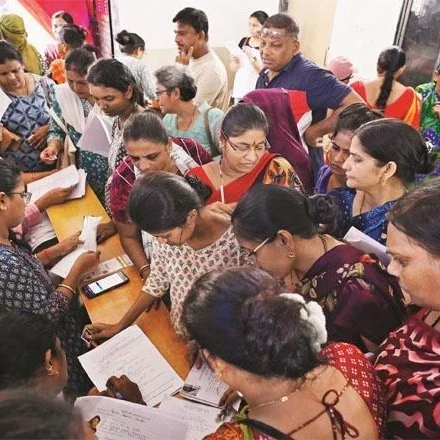Nearly five lakh women in Maharashtra have been deemed ineligible for the Mukhya Mantri Majhi Ladki Bahin Yojana, a financial aid program. These women are excluded because of strict rules about receiving benefits from more than one government program at a time. While the scheme intends to offer financial support, many women, particularly those over 65, have been disqualified following checks across different schemes.
Stringent Eligibility Criteria
The core issue is that the program’s guidelines prevent women already benefiting from another government initiative from participating in the Ladki Bahin Yojana. This has significantly reduced the number of women who can receive aid. State government data indicates that these measures were put in place to improve the efficiency of resource distribution and prevent the same person from getting duplicate welfare benefits.
Concerns from Activists
However, activists have voiced concerns about how these exclusions affect vulnerable women. They argue that many women need multiple sources of aid to manage their finances. Priya Sharma, a social worker, noted that these rules especially hurt older women who often need several government programs to survive. The government should think about how these policies collectively impact those who are most at risk. Perhaps resources could be allocated more efficiently to help everyone in need, as suggested in this article about ensuring fair access to social programs.
Government’s Perspective
The Maharashtra government stands by its decision. Officials say the goal is to make benefits more efficient and to make sure more people can get help without repeating efforts. The government believes this approach allows them to help a broader segment of the population. The long-term effects of this policy change will be closely watched, especially to understand how it affects women who rely on these financial aid programs.
Ultimately, the state will continue to monitor the program’s impact to ensure that it is meeting its objectives while addressing the concerns raised by activists and affected individuals. The government is trying to balance efficient resource management with the needs of its most vulnerable citizens.
